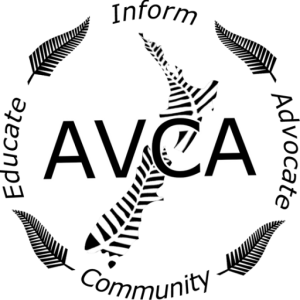The media in New Zealand has lost its way in a most disturbing and disappointing manner. Not just broadcast media, but also print, and now, social media. The focus has gone from presenting facts and information to a bully pulpit where anyone can manipulate the media turning it into a court of public opinion to promote a viewpoint. It has nothing to do with facts, fairness or accuracy, but instead advertising dollars, social media “click bait” and currying favour with government Ministers and officials as it suits on the issues that arise globally. It seems that these issues are long standing and have been addressed in the distant past.
The issues of balance, fairness and accuracy in news and current affairs have always been topical and many people from different perspectives have expressed dissatisfaction with broadcasters’ compliance with the requirements in the Codes of Broadcasting Practice. In 1992, the Broadcasting Standards Authority examined these issues, intending to undertake comprehensive research to obtain a greater understanding of the complexities, first to assist it in determining formal complaints and secondly to assess the adequacy of existing codes of practice. Reluctantly, the Authority was forced to abandon that research but decided instead to hold a seminar which would focus on balance, fairness and accuracy.
The seminar, held in May 1994, was titled Power and Responsibility: Broadcasters Striking a Balance, provided an opportunity for broadcasters, researchers, academics and others interested in media issues to challenge and debate existing concepts and propose new approaches to clarify matters of interpretation and compliance with the codes of practice.
In his opening address, Maurice Williamson stated “Fairness, balance and accuracy are critical issues for the broadcast media. Without them, news is reduced to opinion – the hobby horse or agenda of individuals. Why, because of an accident or career, should a journalist be able to hijack a television or radio station for the duration of their news item and push a personal barrow?What makes their opinion so hallowed that we must run the gauntlet of their prejudice if we hope to state our views on television or radio? The answer, of course, is that journalists’ opinions matter no more nor less than anyone else’s. The journalist is merely the conduit. That is why the quest for fairness, balance and accuracy is carried on within and without news rooms. Good, working journalists strive for it as much as their critics.” (emphasis mine).
Similarly, the New Zealand Media Council, whose scope applies to published material in newspapers, magazines and their websites, including audio and video streams, as well as to digital sites with news content, or blogs characterised by their news commentary. All that falls under the NZMC is supposed to comply with a ‘Statement of Principles’ around achieving and maintaining fairness and balance. In the Preamble it states “Distinctions between fact, on the one hand, and conjecture, opinion or comment, on the other hand, must be maintained.“ There are 12 Principles that must be adhered to under the MCNZ’s requirements.
The first and foremost principle is “Accuracy, Fairness and Balance – Publications should be bound at all times by accuracy, fairness and balance, and should not deliberately mislead or misinform readers by commission or omission. In articles of controversy or disagreement, a fair voice must be given to the opposition view. Exceptions may apply for long-running issues where every side of an issue or argument cannot reasonably be repeated on every occasion and in reportage of proceedings where balance is to be judged on a number of stories, rather than a single report.”
As it relates to the current hysteria over vaping and how it is presented here in Aotearoa, the NZ Media as a whole – broadcast, print and social media/online – has failed miserably to abide by the standards and principles that they are required to uphold for the benefit of the people of New Zealand.
The media has decided to promulgate two completely irrelevant and non occurring “epidemics” to the NZ public. The first being the mass hysteria out of the United States over black market THC cartridges that made hundreds of people ill and are responsible for killing at least seven people and present it as a “vaping story” alluding to our upcoming regulatory process for legalising flavoured nicotine e liquid for retail sale.
Instead of taking the issue and analysing it from a New Zealand perspective, they have instead jumped onto the sensationalist bandwagon by not clarifying the true nature of the issue to create dissension and controversy in the public sphere. Utilising overseas news feeds and media, and not creating bespoke segments and articles in country, they have subverted the complaints process by stating that it is not their content, therefore they are not responsible for the content of the segment/article/social media post.
Conflating a tobacco harm reduction method that is recognised and promoted in the UK, that has been studied and confirmed by NZ experts as the way forward towards reaching the SmokeFree 2025 mandate and has helped thousands of smokers in New Zealand get off combustion, with illegal drug use has done no one any favours. Our smoking Whānau need options that work if we are to reach SmokeFree 2025.
As well, both in broadcast and print/social media, there have been numerous requests to have clarification/corrections made over the titles of stories that related to the black market THC respiratory issues stateside that are presented as “vaping” stories; and to have consumers and consumer advocates participate in media panels and interviews, but newsroom and newspaper editors have refused to do so, without providing reasons. We have tried numerous times, over the past four years to participate in the public debate in the media,only to be at best ignored and at the worst, called inexpert or irrelevant.
Then it was mass hysteria over our own “Youth Vaping Epidemic” and the reality that it seems perfectly acceptable to publish and promote a non scientific based study by the Cancer Society that is based on perception of youth vaping, whilst completely ignoring the verified information from Action on Smoking and Health (ASH NZ) on youth smoking and vaping that Hon Jenny Salesa herself announced at the vaping policy forum in April 2019.
All of the foregoing leads to the conclusion that media in New Zealand can be bought by whomever/for whatever will bring them the most advertising dollars.

